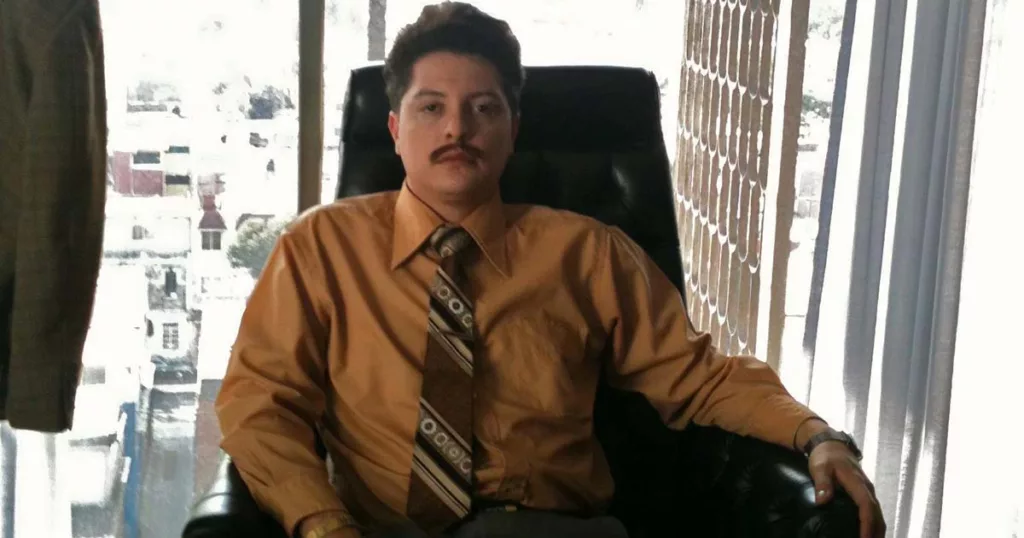Let me start with this: Acting is not easy but achievable. A career as an actor that’s almost impossible. I mean having a great life, living full-time as a paid actor.
Pursuing a full-time, paid actor career is probably the most challenging endeavour in any industry. While acting itself is not easy, achieving mastering the craft, with dedication, perseverance, and a combination of talent is possible.
It’s important to recognize the realities of the acting industry, which can make it challenging to maintain a stable and financially secure livelihood solely through acting.
The acting industry is highly competitive, with limited roles available for a large pool of actors.
Securing acting jobs necessitates a combination of skill, luck, timing, and networking.
Many actors experience periods of unemployment and face difficulties in finding consistent work, leading to financial instability and uncertainty. Including myself.
Actors can find fulfillment in their craft through various avenues such as theater, independent films, teaching, or related fields. However, achieving full-time paid status and financial freedom as an actor can be almost impossible.
Let me be clear, You can be an actor and work full-time only if you work for a theatre company or constantly work in film tv or commercials. But you will be struggling. According to Gitnux and the U.S. BUREAU OF LABOR STATISTICS, here are the true realities of the profession:
85% of actors experiencing unemployment at any given time highlights the fierce competition and challenges within the acting profession.
This statistic underscores the importance of resilience and persistence for aspiring actors who must navigate through periods of limited job opportunities.
It also emphasizes the need for actors to develop additional skills and explore diverse avenues within the industry to supplement their income and maintain their passion for acting.
With approximately 63,000 actors working in the United States, 28,000 in Canada (ACTRA) and 60000 in Mexico (ANDA), this statistic showcases the substantial number of individuals pursuing careers in acting.
The profession is highly competitive, and the statistics surrounding it can be quite daunting.
According to research, a significant portion of actors experience unemployment, with approximately 85% being unemployed at any given time.
Only 12.08% of actors earn more than $1000 in a year.
The average annual income for actors in the United States is reported to be around $50,529, with an expected growth rate of 3%.
It is estimated that there are approximately 63,000 actors actively working in the country, and they have a median hourly wage of $20.26.
SAG-AFTRA, one of the major unions for media professionals, has a membership of over 160,000.
However, less than 15% of actors hold full-time jobs within their profession.
Nearly 31.9% of actors have obtained bachelor’s degrees or higher education qualifications.
In terms of gender distribution, approximately 54.3% of actors are female, while 45.7% are male. The average age of actors is around 42 years old.
In Los Angeles County alone, there are approximately 24,000 employed in the acting industry, including extras.
Theatre actors typically earn an average of around $29,000 annually, and on average, they work 28 hours per week.
It’s worth noting that child actors experience twice as much unemployment as adults do, and in the United Kingdom, about one-third of professional actors make less than £5,000 yearly solely from performances.
These statistics provide a glimpse into the challenging and dynamic nature of the acting profession, highlighting the competitiveness, income disparities, and varied experiences within the field.
Standing out and making a sustainable career in acting requires dedication, versatility, and a strong commitment to continuous growth and improvement.
Moreover, the notion of a “great life” varies from person to person. While some actors may achieve fame and fortune, others find fulfillment in the artistic expression and the joy of bringing characters to life.
The satisfaction derived from pursuing one’s passion and engaging in meaningful creative work can outweigh the challenges posed by financial stability concerns.
So, Yes, The craft of acting is not easy, but achievable, the profession is not.
Now that we have addressed the ground rules let’s delve into the art of acting and its level of ease or difficulty.
Acting
Acting, an art form that has captivated audiences for centuries, evokes admiration and wonder from spectators enthralled by actors’ talent and dedication.
However, there is a misguided notion among some that acting is an effortless endeavour, a mere act of pretense and imitation.
In order to dispel these misconceptions and cultivate a deeper appreciation for the craft, it is important to shed light on the intricacies, challenges, and sheer hard work that actors encounter.
The Craft of Embodying Characters
Acting is the art of embodying characters and infusing their narratives with vitality.
It is a multifaceted craft that demands skill, dedication, and a deep understanding of human behaviour.
From research to transformation, we uncover the depth and complexity involved in breathing life into characters on stage and screen.
Understanding Characters
To successfully embody a character, actors must embark on a journey of understanding and exploration.
They delve into the character’s background, motivations, and emotions.
Thorough research is conducted to develop a nuanced understanding of the character’s world, including relationships, historical context, and psychological makeup.
This forms the foundation upon which actors build their performances.
Emotional Truth and Authenticity:
At the core of the craft lies the pursuit of emotional truth.
Actors strive to tap into the essence of their characters, authentically expressing their emotions and inner lives.
This requires empathy and the ability to connect with the character’s joys, sorrows, fears, and desires.
Through a delicate balance of vulnerability and control, actors convey the raw essence of their characters, evoking genuine emotions in the audience.
Physicality and Movement
Acting extends beyond words.
Physicality and movement play a crucial role in bringing characters to life.
Actors explore how their characters walk, gesture, and occupy space.
Each physical choice contributes to the portrayal, conveying personality, status, and intentions.
Physical training, including voice modulation and body awareness, enables actors to inhabit their characters and deliver captivating performances fully.
Voice and Diction
The voice is a powerful tool in an actor’s arsenal. It carries the character’s thoughts, emotions, and intentions to the audience.
Actors master vocal projection, diction, and modulation to effectively communicate the character’s words and bring clarity to their performance.
From accents to vocal qualities, actors utilize their voices as instruments, enhancing the authenticity and believability of their characters.
Adaptability and Versatility
Actors navigate a diverse range of characters, genres, and mediums throughout their careers.
They must be adaptable and versatile, capable of embodying characters from different time periods, cultures, and emotional landscapes.
Whether it’s Shakespearean tragedies or contemporary dramas, actors embrace the challenge of immersing themselves in various roles, continuously expanding their range and honing their craft.
Rigorous Training and Preparation
Contrary to popular belief, actors don’t simply rely on innate talent to excel in their craft.
They undergo rigorous training to refine their skills and expand their range.
Actors spend countless hours honing their techniques and rehearsing scenes, striving for perfection in every aspect of their performance.
The process demands discipline, dedication, and a continuous pursuit of self-improvement.
The best actors undergo rigorous training and often have a degree in Acting.
Based on my experience of over 8 years studying and earning a degree, I have found that the acting degree’s valuable lessons are discipline, respect for the craft, and the exploration of different techniques to find the one that works the best for you.
Emotional Vulnerability and Stamina
Acting often requires actors to tap into their own emotional reservoirs and reveal vulnerability.
They must immerse themselves fully in the emotional landscape of their characters, experiencing a wide range of feelings, sometimes even reliving past traumas.
This emotional investment can be physically and mentally draining, necessitating resilience and the ability to separate oneself from the character once the performance ends.
Maintaining a healthy emotional balance is essential to navigate the demands of the profession.
This is very important to tackle. It takes years to find the technique to be able to access your emotions without affecting your mental health.
It is important to have a good trained acting teacher if you can run away from the method of acting, especially at the begging or if you need to resolve personal issues. do that first with a professional therapist.
Read my Article about Method Acting, a very complete guide about it. Click on the link: Why Method Acting is Dangerous?
My mexYcan Take by Emilio Rivera Merritt
Constant Adaptation
Acting is a dynamic art form that constantly evolves with changing cultural norms, storytelling techniques, and technology.
Actors must adapt to new mediums such as film, television, theatre, and streaming platforms, each with its own unique demands.
They must stay updated with industry trends, embrace new technologies, and develop the ability to work collaboratively with diverse teams of directors, writers, and fellow actors.
Now here is what the best Artist in the industry for many years have said about acting:
According to Stanislavski
Stanislavski, a renowned Russian actor and theatre practitioner, viewed acting as a disciplined art form requiring actors to tap into their emotions and experiences to portray characters authentically.
He emphasized the importance of psychological realism and believed in the actor’s ability to create believable characters through the exploration of their inner lives and motivations.
According to Chaplin
Charlie Chaplin, the legendary silent film actor and filmmaker, had a unique perspective on acting.
He believed that acting was a blend of comedy and pathos, where the actor used physicality and facial expressions to convey emotions and tell stories.
Chaplin’s iconic character, “The Tramp,” showcased his ability to connect with audiences through his physical performance, transcending language barriers.
According to Fellini
Federico Fellini, the celebrated Italian filmmaker, had a distinct approach to acting.
He believed in the power of improvisation and the freedom for actors to explore their characters in a spontaneous and organic way.
Fellini sought to capture the essence of humanity through his films and saw acting as a collaborative process between the director and the actors, creating a vivid and surreal cinematic experience.
According to Almodóvar
Pedro Almodóvar, the acclaimed Spanish filmmaker, values the emotional truth and intensity in acting.
He often works with actors repeatedly, building a creative relationship and allowing them to delve into complex, emotionally charged characters.
Almodóvar’s films explore themes of identity, desire, and passion, and he believes in the ability of actors to convey the rawness and vulnerability of human experiences.
According to Ibsen
The influential Norwegian playwright Henrik Ibsen emphasized the importance of psychological depth in acting.
He believed that actors should fully embody their characters, exploring their inner conflicts and motivations.
Ibsen’s plays tackled social issues and examined the complexities of human relationships, and he expected actors to bring emotional truth and authenticity to their performances, enabling audiences to connect with the characters on a profound level.
According to Joaquin Phoenix
Joaquin Phoenix, a highly acclaimed actor, has expressed his view that acting is about empathy and understanding.
He believes that the role of an actor is to explore the human condition and to shine a light on various perspectives and emotions.
Phoenix values the opportunity to delve into different characters and to connect with their motivations, vulnerabilities, and complexities.
According to Lin-Manuel Miranda
Lin-Manuel Miranda, a renowned actor, composer, and playwright, sees acting as a means of storytelling and self-expression.
He believes that acting allows individuals to step into the shoes of others, bridging gaps of understanding and promoting empathy.
For Miranda, acting is about bringing characters to life and sharing their stories in a way that resonates with audiences.
According to Meryl Streep
Meryl Streep, an iconic and versatile actress, has described acting as a blend of imagination, empathy, and craft.
She believes in the transformative power of storytelling and the responsibility actors have to portray characters truthfully.
Streep values the importance of research, observation, and meticulous preparation to bring authenticity to her performances.
According to Guillermo del Toro
Guillermo del Toro, a visionary filmmaker, has highlighted the collaborative nature of acting.
He sees actors as vital storytellers who contribute to the overall vision of a film.
Del Toro values the exploration of the fantastical and the ability of actors to convey emotions and humanity within imaginative worlds.
According to Frances McDormand
Frances McDormand, a highly respected actress, emphasizes the importance of authenticity and truthfulness in acting.
She believes in the power of naturalistic performances and values the ability of actors to capture the essence of real-life individuals.
McDormand sees acting as a way to reflect and represent different aspects of humanity.
MY CONCLUSION
If you are interested in acting as a hobby: watch a lot of movies, read a lot of plays, watch a lot of plays take some workshops in movements, voice, and improv.
And most important, play, play a lot.
Read and watch interviews of your favourite actors and see how they achieve some of they’re stuff.
Don’t forget acting is Play. So just as when you were a kid, play.
Understand your character understand, the situation, and the scene and then play.
If you want to seriously pursue a career as an actor, and you have the money to do it or the family to support you indefinitely, get a degree in acting or theatre.
Go to a theatre school. I went in Mexico to the CUT (UNAM). If you are in Mexico, look for it or for ENAT or Casa Azul. If you are in Vancouver, UBC and Langara have the best programs.







